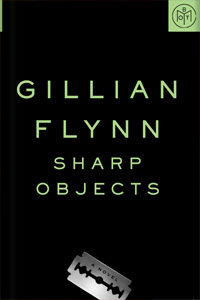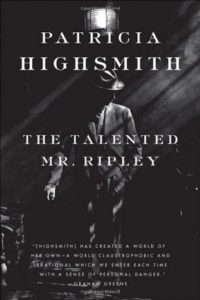My debut novel, A Flaw in the Design, has at its center a character who was a terrible, violent child, who grows into an arrogant, possibly dangerous, possibly even murderous teenager. My Matthew is part of a long literary tradition of what are known as bad seeds, children who seem not just troublesome in the normal, run-of-the-mill sort of way, but who are, possibly, truly evil. There’s something irresistible about this for me as a reader, and as a writer: What if evil were innate, a person’s truest self? How would that person fit into the world, or fail to fit in? How would the people around them, especially family, who love this problematic, possibly-evil child, respond? How would you deal with evil if you found it nested in the heart of your family?
Literature is rich with such stories of bad seeds and the threat they pose to their families, their communities, and, in some cases, the world. Here are some of my favorite bad seed novels, all of which I read and reread, as I wrote my debut.

The Fifth Child, Doris Lessing
I read this novel four times while working on my own book, mostly because it’s a masterpiece of storytelling, but also because it is the most harrowing novel of parenting I’ve ever encountered. The novel centers on a mother who has four lovely children to fill the huge, rambling house outside London she and her husband have stretched themselves to afford, but the fifth child, when it arrives, is a terror: a danger to pets and little kids, an outsider, possibly not quite a human. This fifth child, Ben, destroys the family’s happiness in an inexorable way that is riveting, and heartbreaking.

Rosemary’s Baby, Ira Levin
Better known for the movie adaptation directed by Roman Polanski, this novel by Ira Levin is relentlessly terrifying. The bad seed here – the worst seed, in many ways, as he is (spoiler alert!) the anti-Christ – is barely present, and yet his arrival looms like a dark hand over the novel, building up an atmosphere of almost unbearable tension as the boundary between the everyday and pure evil is broken down.

King, Queen, Knave, Vladimir Nabokov
The epigraph at the beginning of my novel comes from a Nabokov short story, and while I wrote my first draft I immersed myself in his work. Many of his novels are, in fact, literary crime novels. Most famous amongst them is surely Lolita, with its pedophile, murderer narrator, but there’s also the fraud-driven-murderer in Despair, the lunatic thief and possibly-homicidal narrator of Pale Fire, and the nephew in King, Queen, Knave, who falls in love with his aunt and, at her bidding, thinks perhaps he should kill his uncle and take his place. Like all of Nabokov’s fiction, this story is full of tricks, games, allusions, and layers, something I’ve always admired and hoped to emulate in my own way.

Sharp Objects, Gillian Flynn
This is Flynn’s debut novel, and it is a master class in the building of suspense and dread. The novel is about the legacy of trauma, how one generation’s pain and evil is passed on to the next. The novel is also a savage critique of wealth and class in America. The bad seed here is unexpected and unlike any other I’ve encountered. There’s a scene at a pig farm, which involves nothing more than watching the mother pig mauled by her ravenous children, that is utterly chilling.

We Have Always Lived in the Castle, Shirley Jackson
The narrator of this novel is perhaps the greatest of all time bad seed narrators, and the opening paragraph is one of the best I’ve ever read. There’s a scene of mob violence at the end that recalls Jackson’s most famous short story, “The Lottery.” I’m also interested in Jackson’s status as a Vermont writer: A transplanted New Yorker, her fiction is filled with the sense of not-belonging, of being forever an outsider. This tension runs through my own book – the main character is a transplanted New Yorker in Vermont, who, unlike most of Jackson’s narrators, loves his country life – and I looked often to her work while writing for guidance on how to navigate this dynamic.

The Children of Dynmouth, William Trevor
Timothy Gedge, the main character of this 1976 novel by the great Irish writer, is possibly evil, and definitely sadistic. Yet the novel suggests his malevolence is not an inborn quality, but, rather, the result of his near-abandonment – his father is dead, his mother is almost entirely absent – and the boy’s resulting loneliness. That loneliness lies, in so many instances, at the root of evil is, in some ways, a more troubling notion than the tidier, quasi-religious notion that evil is innate. This novel is deeply sad and, like everything William Trevor wrote, beautiful and humane.

Pet Sematary, Stephen King
Speaking of innate evil: The revenant child (and, before that, cat), in what I think is King’s scariest book, is a visceral evocation of our most primal fears of parenting. Rereading it now, I find the accident on the road as terrifying and awful as any of the supernatural terror that surrounds it. King has an unusual and unmatched ability to tap into childhood fears – an evil-tainted graveyard in the woods here, but I’m also thinking of the basement in Salem’s Lot, and the drainage tunnel in The Shining – and rework them so that childhood fears are awakened and magnified in the adult mind. This is, perhaps, at the heart of all horror, and few writers do it as well.

The Talented Mr. Ripley, Patricia Highsmith
No list of bad seeds could ever leave out Tom Ripley, one of the most iconic figures in twentieth century fiction. This is my favorite of Highsmith’s novels, though she wrote many very good ones. That she manages to make me sympathize with a character who is a psychopath is something I studied and want to try to emulate. In some ways I think of the dangerous nephew in my own novel as a hybrid of Tom and his love-object/first victim, Dickie Greenleaf. A dangerous, devious boy, but also one, in my version, who is fabulously rich and entitled. Many of Highsmith’s narrators teeter on the edge of evil, and part of the pleasure of her books is watching them slip fully into their true, often terrible, selves.
***


















